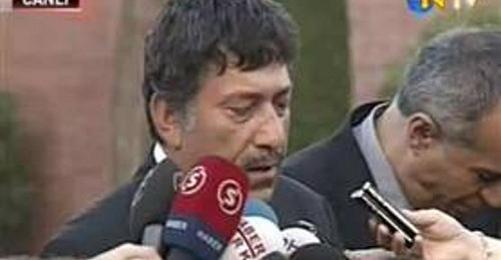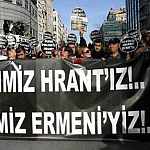President Abdullha Gül met with Hosrof Dink, the brother of assassinated Turkish-Armenian journalist Hrant Dink, in Istanbul on Friday (20 August).
Gül had invited Dink to a mansion in the Tarabya district. The meeting lasted for one hour. Dink said afterwards, "I thank the president for his invitation. We talked about very sensitive topics such as sharing sorrow and pouring out our grievances. The meeting was all about this. Thank you".
Dink did not take any questions from the journalists. Gül did not comment on the meeting at all.
Hrant Dink, then editor-in-chief of the Armenian Agos newspaper, was killed on 19 January 2007. Prior to his assassination he had been convicted under article 301 of the Turkish Criminal Code (TCY), which bans "insults" to the Turkish state. The Dink family brought the case to the European Court of Human Rights (ECHR). In the defence of the Turkish state recently submitted to the international court, Dink was compared to a Nazi leader and accused of spreading "hate speeches".
After the news about the defence had made the headlines, president Gül admitted that the "necessary precautions" had not been taken to prevent the murder of the journalist. Foreign Minister Ahmet Davutoğlu and Justice Minister Sadullah Ergin both distanced themselves from the defence.
Türmen: government should apologize
Rıza Türmen, former judge at the ECHR, criticized the defence of the Turkish state. He advised the state to admit a mistake instead of defending it.
In an article published in the nation-wide Milliyet newspaper on Friday (20 August), Türmen took pen to paper on the defence: "It is not necessary to defend every case. Sometimes it might be better for the state in moral and legal terms to admit a mistake instead of clinging to a defence. If this case is bothering the government that much, they could conclude the case before it is decided".
According to Türmen, this could be done in two ways. That could either be an amicable agreement between the government and the complainants. This is related to the state's prosecuting the public officials accused of negeligence and thus paving the way to the murder of Dink and to correcting the sentence handed down to Dink under Article 301. The government could apologize, Türmen suggested.
Or, in case an amicable agreement would not work out, the government could unilaterally announce to accept a violation of the European Convention on Human Rights and agree on compensation. If the ECHR would recognize such a declaration, the "victim" status of the complainants could be lifted and the case could be concluded, the judge said. (TK/VK)















